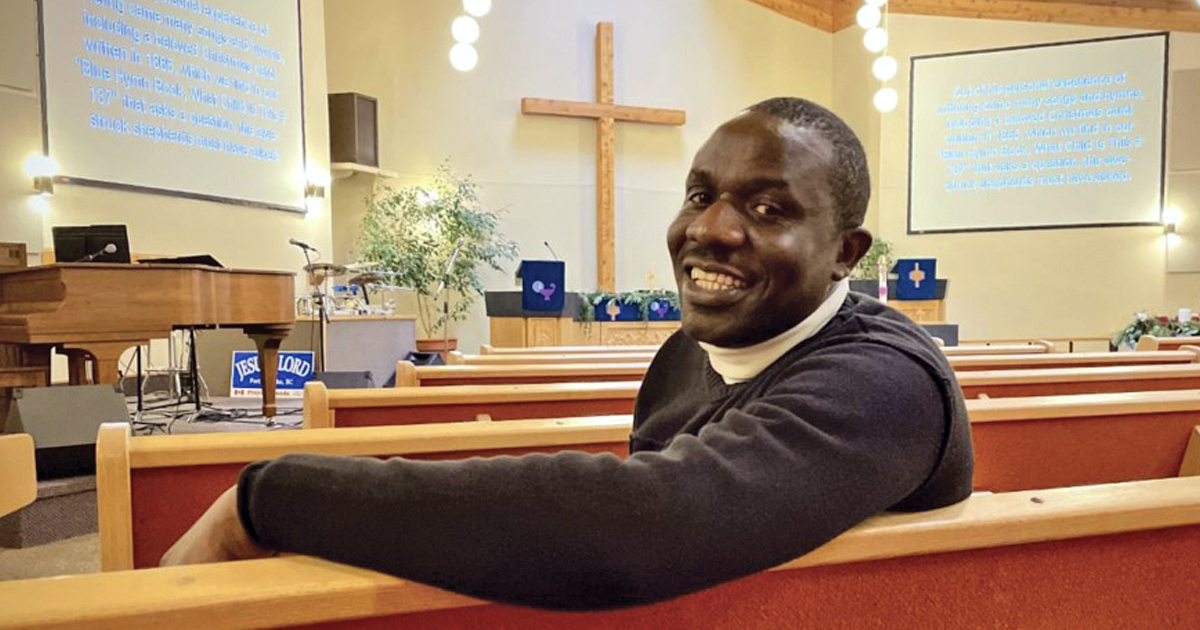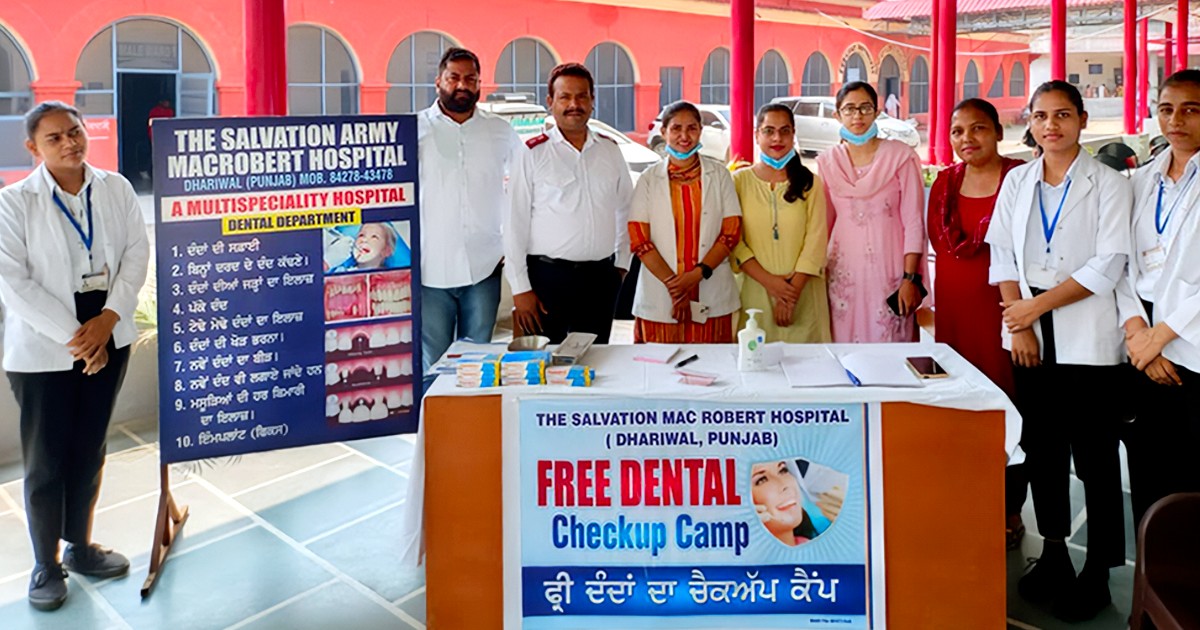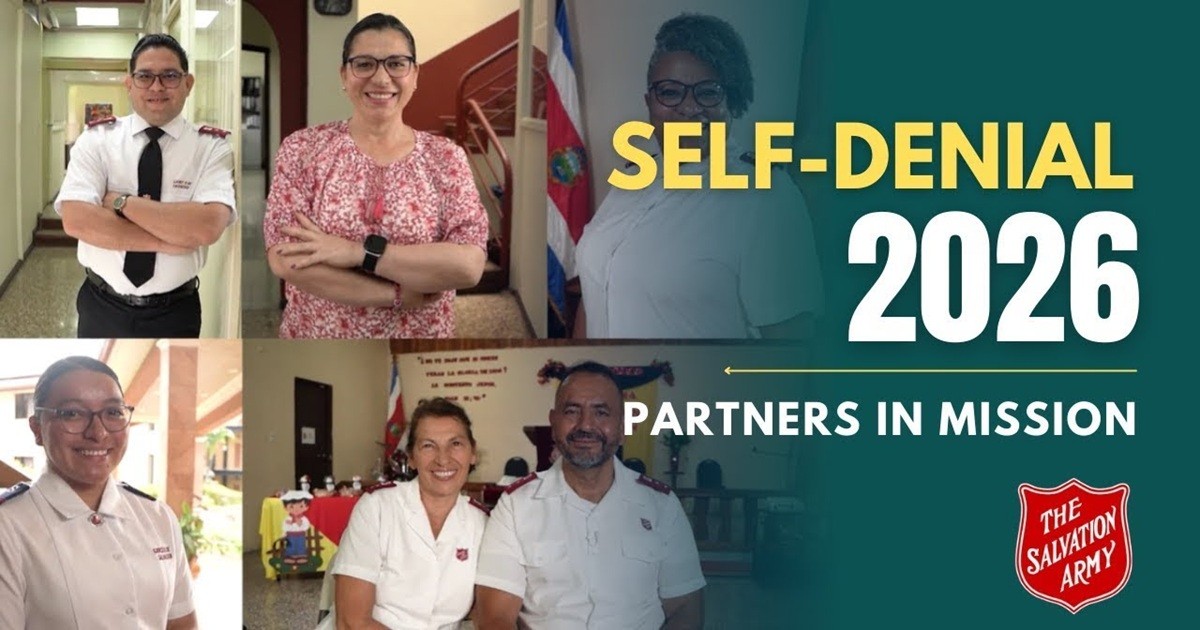In Isaiah 58:10, the biblical prophet says, “If you open your heart to the hungry, and provide abundantly for those who are afflicted, your light will shine in the darkness, and your gloom will be like the noon” (Common English Bible).
So it is that Wilfred Alero has brought his light to Fort St. John, B.C., from Kenya, opening his heart to serve the spiritual needs of those often forgotten by society: the elderly in their dying days and people battling addiction on the streets.
“To be a chaplain means to stand with people who are needy. There is a genuine need out there other than the one in the church where you see people coming in their Sunday best,” says Wilfred, approaching his one-year anniversary of moving to Fort St. John to provide chaplaincy services at the Peace Villa care home and, eventually, at The Salvation Army’s Northern Centre of Hope as well. “That is what I’m there to offer.”
Journey to Chaplaincy
An ordained Anglican priest, Wilfred came to Canada in July 2019 to work in Smithers, B.C. But in March 2021, after a year of COVID-19 pandemic lockdowns and prohibitions on public worship services, he says he “hit a bump” and couldn’t continue with his ministry there.
But Wilfred’s work visa restrictions, which allowed him to perform religious duties only, meant there wasn’t much else for him to do. Months later in August, he began volunteering with the fire department in Houston, B.C., to shake the emotional and mental toll of being jobless. His wife, a childcare worker, supported the family while he took care of their three young children, all boys, at home.
“I was still trying to find the face of God in what He wanted me to do here,” Wilfred says. “I wanted to go back home because I thought Canada was not the right place for me. I mistook that it was my call, or it was my call still, yes, but I needed something else alongside that.”
When he first saw the ad in February 2022 for a chaplain wanted at the Peace Villa care home in Fort St. John, Wilfred wasn’t sure if it was his calling, even though being ordained in the missionary Anglican church allows him to move and minister anywhere in the world there is a need.
“I was like, chaplain? At a care home? No, I’m a minister. I’m not thinking about that. I gave it thought for a month or two, then I said, ‘Well, maybe this is what God wants of me,’ ” he says. “I applied and was invited to an interview. That’s how we moved up here.”
By the end of summer, Wilfred had also taken up chaplaincy at the Salvation Army shelter in Fort St. John.
Giving Hope
Wilfred takes inspiration from William Booth, the English preacher who founded the Army in 1865.
"General Booth said his decision to start the foundation of The Salvation Army was based on the thought that we have been ministering to people in the church, people coming to us,” Wilfred explains. “But there are people out there who don’t know what church is, who don’t know God. And now, this may be the time to leave the conventional means of ministering from the pulpit and take it to the streets.
“I was really excited with that, taking the church out there to people who need it, who can’t come to church because of various reasons, some mental, psychological, economic, feeling of discrimination,” he continues. “That really inspired me.”
“To be a chaplain means to stand with people who are needy." Wilfred Alero
Serving the city’s most vulnerable, Wilfred says giving spiritual guidance to care home residents is “extremely different” than providing it for those living in the shelter. Residents in long-term care are often older than 90 with some suffering from dementia; residents at the shelter are often young and struggling with addictions, their whole lives still ahead of them.
"In residential care, my main job there is to transition, to make sure that before they go to rest, they know God and their fate in the life after this one,” he says. “It comes with its challenges, especially death, because we bond, we sing, we talk, we laugh … but then a few days later, you hear that they’re dead.
“Shelter residents, on the other hand, are at an extremely productive age, people who still need their future. They have a vision, but something has happened in their life because of mental breakdown and drugs,” he continues. “So, the biggest thing here is to return that hope to them. And the worst thing is to see people dying at 19 because of overdose … all that potential gone. That is what breaks me down. They had this potential. We never saw it.“
But the ultimate thing at the end of the day is to introduce Christ to them because He changes everything,” he says. “At The Salvation Army, we try to walk people through their real struggles in life and give them hope.”
“It’s a Beautiful Day”
Going on four years of integrating into Canada and moving around with his ministry, Wilfred says he and his family are here for the long-term. He wants stability for his children, ages 13, seven and five, most of all.
“They’ve got friends, they have fun. They have adjusted and they’re at home. If anything, moving them again would be the trouble,” he says. “It has come to that time where I want my children to settle down and grow up with their friends in an environment they can call home.”
As for himself and his wife, Wilfred admits they’re still adjusting some days, especially to the climate.
But, he adds, “I keep challenging myself every day, trying to look at the positive side of it and ignoring the darker side. I have to play with my attitude, my mind, and tell myself that it will be well, it is well.
“Every day, I see the sun, I tell myself that it’s a beautiful day. If there is no sunlight, then I try to find something that will help me, that will convince me that it’s a beautiful day.”
Reprinted from Alaska Highway News, January 12, 2023
Photo: Matt Preprost/Alaska Highway News










Leave a Comment